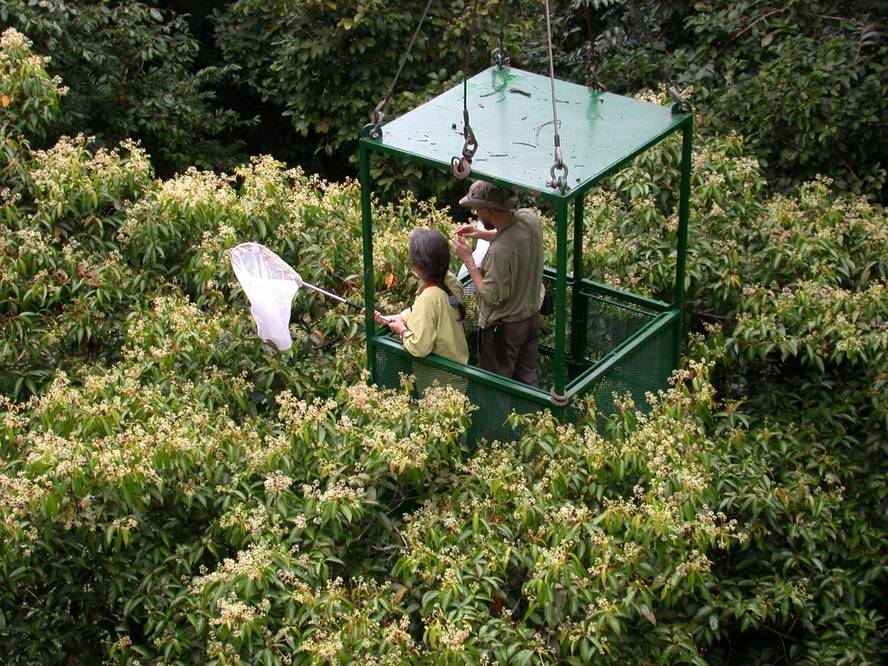0.48 hectares of forest, two years, 102 researchers, 129,494 arthropods
The San Lorenzo forest reserve in Panama occupies 6,000 hectares. There, 102 researchers led by entomologist Yves Basset of the Smithsonian Tropical Research Institute of Panama have worked for two years. Objective: to collect and count from the soil to the tip of the trees, the arthropod species that inhabit the jungle. A forest sample of 0.48 hectares has been obtained and 14 collection protocols have been applied for the systematic capture of specimens of all subgroups of arthropods. 129,494 specimens from 6,144 species.
--> Photo gallery: Researchers collecting arthropods
Subsequently, sampling data have been crossed with models to calculate the diversity of tropical forest arthropods. “There are six models,” explains Basset to the journal Science, which today published the results of the research, “and we have all used them to make predictions and crossed them with the data from the samples collected.” The results show that the models that relate the diversity of vegetation to that of arthropods correspond perfectly with the biodiversity measured for arthropods, both herbivore and non-herbivores. Basset has stated that the study has served to validate models of predictions.
With these models, researchers have calculated that 25,000 arthropod species live in the San Lorenzo jungle of Panama. Also, according to their estimates, in a single hectare of the jungle coexist, at any time, 60% of these species. Spectacular wealth.






